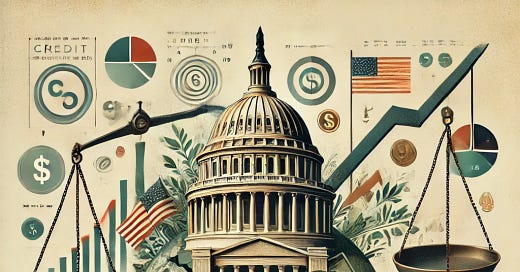In recent months, the United States has faced significant challenges regarding its debt ceiling, leading to widespread economic uncertainty. This article explores the origins of the debt ceiling crisis, its impact on global markets, and the potential long-term consequences for the international economy.
Understanding the U.S. Debt Ceiling
The debt ceiling is a legislative limit on the amount of national debt that the U.S. Treasury can incur. When this limit is reached, the government cannot issue new debt without congressional approval, potentially leading to a default on obligations.
Recent Developments
In August 2024, the U.S. government approached its debt ceiling, prompting intense political debates. Despite warnings from economists and financial institutions, a resolution was delayed, leading to a temporary government shutdown and increased market volatility.
Global Market Reactions
The uncertainty surrounding the U.S. debt ceiling has had several global economic repercussions:
Stock Market Volatility: Global stock markets experienced significant fluctuations as investors reacted to the potential for a U.S. default.
Currency Fluctuations: The U.S. dollar weakened against major currencies, affecting international trade and investment flows.
Interest Rates: Concerns over U.S. creditworthiness led to increased borrowing costs, impacting both domestic and international borrowers.
Long-Term Implications
The debt ceiling crisis has raised concerns about the stability of the U.S. economy and its role in the global financial system:
Investor Confidence: Prolonged uncertainty may erode confidence in U.S. Treasury securities, traditionally seen as a safe investment.
Global Economic Growth: A U.S. default could trigger a global recession, given the interconnectedness of modern economies.
Policy Reforms: The crisis has sparked discussions about the need for reforms to prevent future impasses, including potential changes to the debt ceiling mechanism.
Conclusion
The U.S. debt ceiling crisis serves as a stark reminder of the interconnectedness of global economies. While a resolution was eventually reached, the episode underscores the importance of fiscal responsibility and the need for mechanisms to prevent similar crises in the future.





